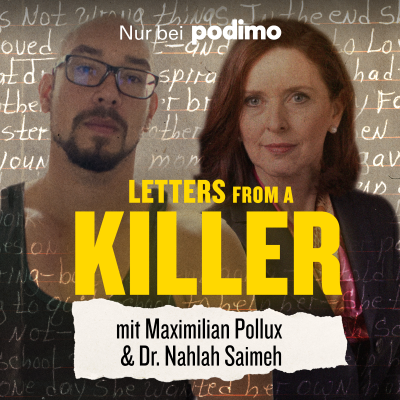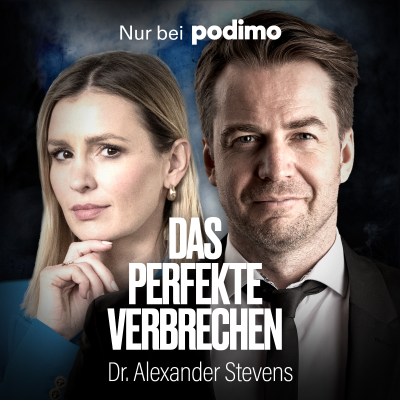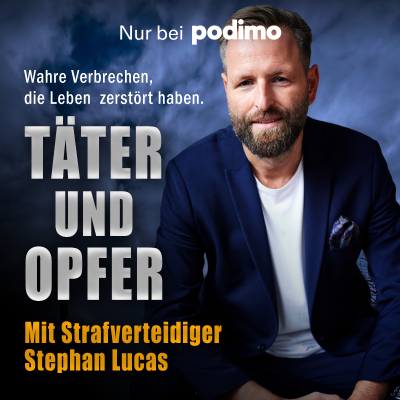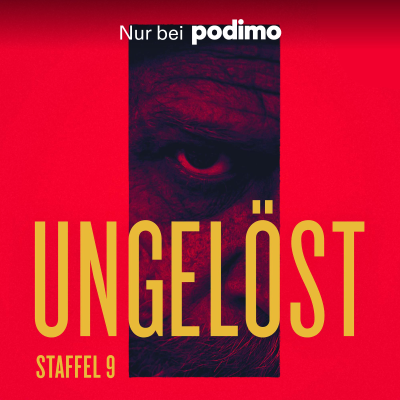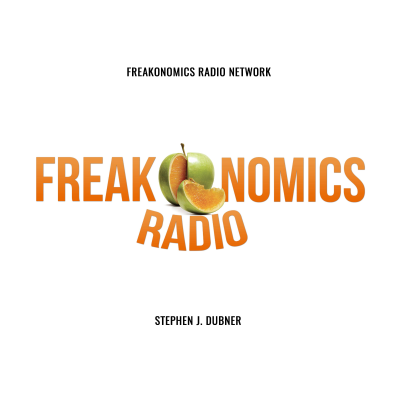
Freakonomics Radio
Englisch
Kostenlos bei Podimo
Kostenlos hören bei Podimo
Starte jetzt und verbinde dich mit deinen Lieblingspodcaster*innen
- Vertraut von über 1 Mio. deutschen Hörer*innen
- Über 1.000 lokale Podcasts und Shows – nur bei Podimo
- Keine Zahlung nötig
Mehr Freakonomics Radio
Freakonomics co-author Stephen J. Dubner uncovers the hidden side of everything. Why is it safer to fly in an airplane than drive a car? How do we decide whom to marry? Why is the media so full of bad news? Also: things you never knew you wanted to know about wolves, bananas, pollution, search engines, and the quirks of human behavior. To get every show in the Freakonomics Radio Network without ads and a monthly bonus episode of Freakonomics Radio, start a free trial for SiriusXM Podcasts+ on Apple Podcasts or by visiting siriusxm.com/podcastsplus.
Alle Folgen
892 Folgen665. Werner Herzog Isn’t Afraid ...
... of bad reviews, meager financing, or artificial intelligence. But he is worried that the world is full of sloppy thinkers who mistake facts for the truth. * SOURCES: * Werner Herzog [https://www.wernerherzog.com/films-by-werner-herzog.html], writer, filmmaker, and actor. * RESOURCES: * The Future of Truth [https://amzn.to/4tSy4QZ], by Werner Herzog (2025). * Every Man for Himself and God Against All: A Memoir [https://amzn.to/40i3JOd], by Werner Herzog (2023). * EXTRAS: * "When Did We All Start Watching Documentaries? [https://freakonomics.com/podcast/when-did-we-all-start-watching-documentaries/]" by Freakonomics Radio (2025). * "Werner Herzog Thinks His Films Are a Distraction [https://freakonomics.com/podcast/werner-herzog-thinks-his-films-are-a-distraction/]," by People I (Mostly) Admire (2023). Hosted by Simplecast, an AdsWizz company. See pcm.adswizz.com [https://pcm.adswizz.com] for information about our collection and use of personal data for advertising.
664. Are Thousands of Medical Cures Hiding in Plain Sight?
Existing drugs can sometimes be repurposed to treat rare diseases. But making that match can be hard — and the financial incentives are weak. Guest host Steve Levitt tries to solve the puzzle. * SOURCES: * Chris Snyder [https://faculty-directory.dartmouth.edu/christopher-snyder], professor of economics at Dartmouth College. * David Fajgenbaum [https://www.med.upenn.edu/apps/faculty/index.php/g275/p8205911], co-founder and president of Every Cure, physician-scientist at the University of Pennsylvania. * Heather Stone [https://www.linkedin.com/in/heather-stone-51a94a49/], health science policy analyst at the Food & Drug Administration. * Sarrin Chethik [https://www.linkedin.com/in/s-chethik/], senior policy analyst at the Market Shaping Accelerator. * RESOURCES: * Chasing My Cure: A Doctor's Race to Turn Hope into Action; A Memoir [https://amzn.to/40inncE], by David Fajgenbaum (2019). * Strong Medicine: Creating Incentives for Pharmaceutical Research on Neglected Diseases [https://amzn.to/4tOfJEA], by Michael Kremer and Rachel Glennerster (2016). * Market Shaping Accelerator [https://www.marketshapingaccelerator.org/]. * CURE ID Registry [https://cure.ncats.io/create]. Hosted by Simplecast, an AdsWizz company. See pcm.adswizz.com [https://pcm.adswizz.com] for information about our collection and use of personal data for advertising.
All You Need Is Nudge (Update)
When Richard Thaler first published Nudge, the world was just starting to believe in his brand of behavioral economics. In this 2021 episode, we ask: How has nudge theory held up in the face of a global financial meltdown, a pandemic, and other existential crises? * SOURCES: * Richard Thaler [https://faculty.chicagobooth.edu/richard-thaler], professor of economics at the University of Chicago. * RESOURCES: * Nudge: The Final Edition [https://www.amazon.com/gp/product/B0946MV5SV/ref=as_li_qf_asin_il_tl?ie=UTF8&tag=freakonomic08-20&creative=9325&linkCode=as2&creativeASIN=B0946MV5SV&linkId=2fc228c2af0ecc8be2797668878cef6d], by Richard Thaler and Cass Sunstein (2021). * Sludge: What Stops Us from Getting Things Done and What to Do About It [https://www.amazon.com/gp/product/B08PYB9XN4/ref=as_li_qf_asin_il_tl?ie=UTF8&tag=freakonomic08-20&creative=9325&linkCode=as2&creativeASIN=B08PYB9XN4&linkId=ee91cd0eb631110ccf2c8e6201d320b6], by Cass Sunstein (2021). * "Sludge: Americans Spend 11.4 Billion Hours Filling Out Federal Paperwork [https://bigthink.com/politics-current-affairs/sludge-americans-paperwork-cass-sunstein]," by Cass Sunstein (Big Think, 2021). * "Carbon Taxation in Sweden [https://www.government.se/government-policy/taxes-and-tariffs/swedens-carbon-tax/]," by Government Offices of Sweden Ministry of Finance (2021). * "The Climate Club: How to Fix a Failing Global Effort [https://www.foreignaffairs.com/articles/united-states/2020-04-10/climate-club]," by William Nordhaus (Foreign Affairs, 2020). * "Organ Donation: Presumed Consent and Focusing on What Matters [https://blogs.bmj.com/medical-ethics/2017/09/25/organ-donation-presumed-consent-and-focusing-on-what-matters/]," by Rebecca Brown (The Journal of Medical Ethics Blog, 2017). * EXTRAS: * "Sludge [https://freakonomics.com/podcast-tag/sludge/]," series by Freakonomics Radio (2025). * “People Aren’t Dumb. The World Is Hard. (Ep. 340 Rebroadcast) [https://freakonomics.com/podcast/thaler-rebroadcast/],” by Freakonomics Radio (2018). Hosted by Simplecast, an AdsWizz company. See pcm.adswizz.com [https://pcm.adswizz.com] for information about our collection and use of personal data for advertising.
663. Is Weed a Performance-Enhancing Drug?
The science says no, at least not in the athletic sense. But the psychic benefits can be large — just ask former N.F.L. star Ricky Williams. He says athletes should consider cannabis a healing drug, not a party drug. Even the N.F.L. is starting to agree. (Part two of a two-part series [https://freakonomics.com/high-performance/].) * SOURCES: * Angela Bryan [https://www.colorado.edu/psych-neuro/angela-bryan], professor, associate chair for faculty development in the department of psychology and neuroscience at the University of Colorado, Boulder. * Ricky Williams [https://www.highsman.com/the-brand], former N.F.L. running back, founder of Highsman. * RESOURCES: * "Using A Lab On Wheels To Study Weed From Dispensaries [https://www.sciencefriday.com/segments/cannavan-lab-cannabis-study/]," by Science Friday (2024). * "Exercise-induced euphoria and anxiolysis do not depend on endogenous opioids in humans [https://www.sciencedirect.com/science/article/abs/pii/S0306453021000470]," by Michael Siebers, Sarah Biedermann, Laura Bindila, Beat Lutz, and Johannes Fuss (Psychoneuroendocrinology, 2021). * "Endocannabinoids mediate runner’s high [https://www.science.org/doi/abs/10.1126/scisignal.aad7694]," by Sudhakaran Prabakaran (Science Signaling, 2015). * "Cannabis and Exercise Science: A Commentary on Existing Studies and Suggestions for Future Directions [https://pubmed.ncbi.nlm.nih.gov/26178329/]," by Angela Bryan, Arielle Gilman, and Kent Hutchison (Sports Medicine, 2015). * Run Ricky Run [https://amzn.to/4621C4g], documentary (2010). * EXTRAS: * "Is America Switching from Booze to Weed? [https://freakonomics.com/podcast-tag/is-america-switching-from-booze-to-weed/]" series by Freakonomics Radio (2024). Hosted by Simplecast, an AdsWizz company. See pcm.adswizz.com [https://pcm.adswizz.com] for information about our collection and use of personal data for advertising.
662. If You’re Not Cheating, You’re Not Trying
In sports, the rules are meant to be sacrosanct. But when it comes to performance-enhancing drugs, the slope is super-slippery. (Part one of a two-part series [https://freakonomics.com/if-youre-not-cheating-youre-not-trying/].) * SOURCES: * April Henning [https://www.hw.ac.uk/profiles/uk/school/ebs/faculty/april-henning], associate professor of international sport management at Heriot-Watt University in Edinburgh, Scotland. * Aron D'Souza [https://arondsouza.com/index.html], founder of the Enhanced Games. * Floyd Landis [https://floydsofleadville.com/], former professional cyclist, founder of Floyd's of Leadville. * Louisa Thomas [https://www.newyorker.com/contributors/louisa-thomas], staff writer at The New Yorker. * RESOURCES: * Doping: A Sporting History [https://amzn.to/4a2uHik], by April Henning and Paul Dimeo (2022). * "The Man Who Brought Down Lance Armstrong [https://www.theatlantic.com/magazine/archive/2018/05/lance-armstrong-floyd-landis/556868/]," by Matt Hart (The Atlantic, 2018). * Cycle of Lies: The Fall of Lance Armstrong [https://amzn.to/4a0Vlbw], by Juliet Macur (2014). * Positively False: The Real Story of How I Won the Tour de France [https://amzn.to/3ZnTRSq], by Floyd Landis (2007). * Alice's Adventures in Wonderland [https://amzn.to/4tiGTmJ], by Lewis Carroll (1865). * EXTRAS: * "Has Lance Armstrong Finally Come Clean? [https://freakonomics.com/podcast/has-lance-armstrong-finally-come-clean/]" by Freakonomics Radio (2018). Hosted by Simplecast, an AdsWizz company. See pcm.adswizz.com [https://pcm.adswizz.com] for information about our collection and use of personal data for advertising.

